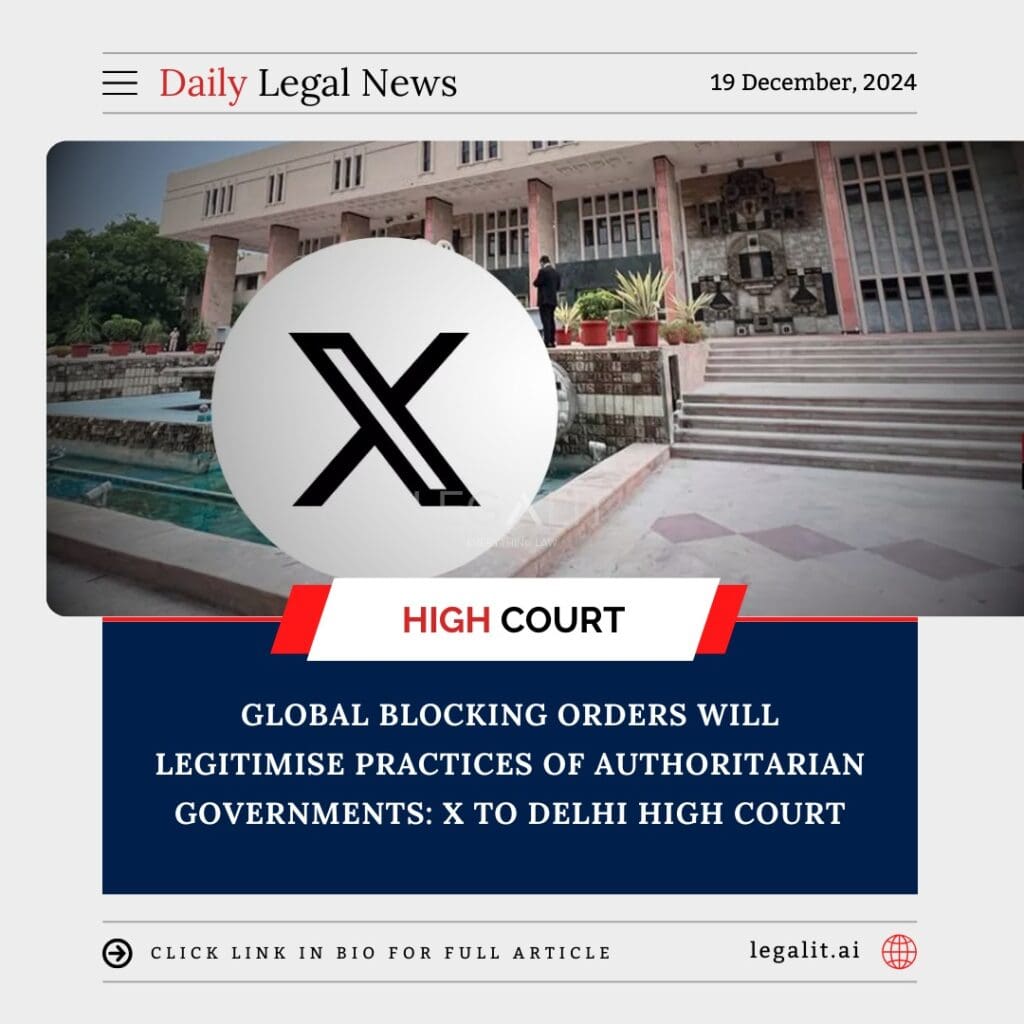
Social media platform X (formerly Twitter) has argued before the Delhi High Court that global blocking orders issued by Indian courts could set a dangerous precedent. The platform contends that such orders may legitimize the practices of authoritarian regimes and undermine the principles of free speech and open internet.
Background:
The case pertains to a plea seeking the removal of allegedly defamatory and unlawful content against an individual from the platform globally. The petitioner argued that merely blocking such content in India is insufficient, as it remains accessible in other jurisdictions.
X challenged the global applicability of such orders, asserting that they infringe upon the sovereignty of other nations and pose significant legal and operational challenges.
Key Arguments:
- Petitioners’ Stand:
- Blocking unlawful content solely in India is inadequate as it remains accessible globally, defeating the purpose of removal orders.
- Platforms like X must comply with Indian court directives to ensure comprehensive enforcement.
- Respondents’ Stand:
- X argued that global blocking orders risk legitimizing practices of authoritarian governments, which may misuse similar orders to suppress dissent or criticism.
- Compliance with such orders would conflict with laws in other jurisdictions where the content in question may not be deemed unlawful.
- The platform emphasized the importance of maintaining jurisdictional boundaries in regulating online content.
Court’s Observations:
The Delhi High Court highlighted the need to strike a balance between protecting individual rights and upholding free speech on digital platforms. The court acknowledged the complexity of implementing global blocking orders while respecting international legal frameworks.
Implications of the Case:
- If the court favors global blocking orders, it may lead to:
- Increased accountability for social media platforms in addressing unlawful content.
- Challenges for platforms to navigate conflicting legal requirements across jurisdictions.
- Conversely, if the court limits the scope of such orders to India, concerns about the efficacy of content removal mechanisms may persist.
Broader Context:
The issue raises critical questions about jurisdiction, free speech, and the role of courts in regulating global digital platforms. It underscores the tension between protecting national interests and adhering to international legal norms in the digital age.
Conclusion:
The Delhi High Court’s decision on this matter will set an important precedent for regulating online content in an increasingly interconnected world. The case highlights the challenges of balancing individual rights, free speech, and sovereignty in the realm of global digital governance.